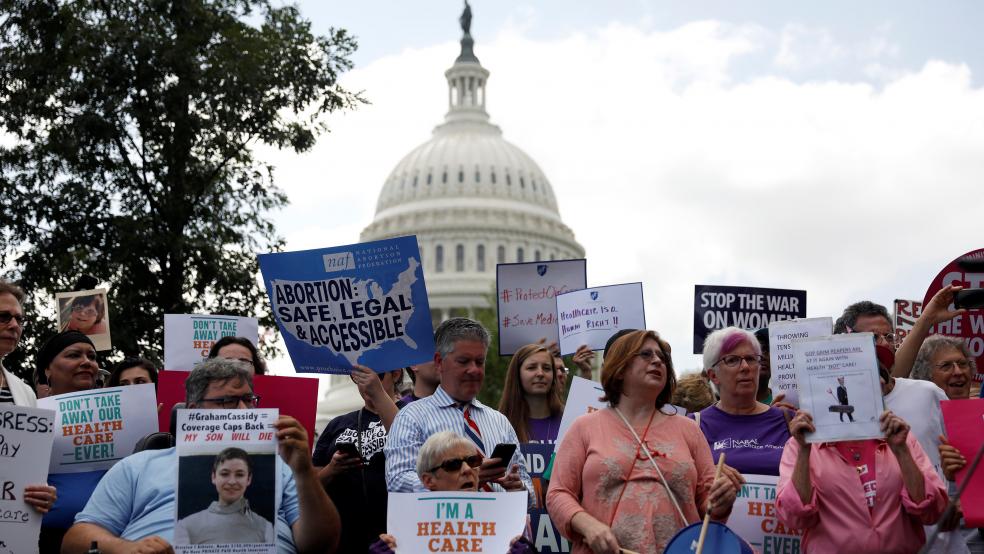In their struggle to find a way to make both hard-right conservatives and more middle-of-the-road members of their party line up behind their health insurance bill, Republican leaders are reportedly considering the abandonment of a key element of the proposal.
The American Health Care Act has a “continuous coverage” provision that is meant to create an incentive for healthy people to sign up for insurance, even if the odds are that they won’t have any major medical expenses in the near future. The provision allows insurers to add a 30 percent premium surcharge on policies for people who go without insurance for 63 days or more. The penalty would last for 12 months.
Related: Why the House GOP Health Care Replacement Plan Is Collapsing
Now, according to the news website Axios, GOP leaders in the House are saying they might jettison the requirement in order to gain more support for the bill.
In one sense, this is easy to understand. The requirement is easily the most unpopular element of the proposed law, according to a poll out Wednesday morning from Morning Consult and Politico. Sixty-four percent of Americans said that they objected to the 30 percent penalty, while only 18 percent said they approved.
In another sense, though, abandoning the coverage requirement is something like actuarial suicide.
The whole point of the requirement was to help stabilize insurance markets if the GOP is successful in repealing the Affordable Care Act’s individual mandate, which requires all Americans to have health insurance or to pay a penalty. The mandate was put in place because a successful insurance market requires that relatively healthy people be willing to purchase insurance even though they probably won’t need all of its benefits. By doing so, they effectively subsidize sicker people who use more services.
Related: How the GOP Health Plan Would Devastate Mentally Ill, Addicted
The reason the Republican plan contained the continuous coverage requirement was precisely to avoid what’s known as the “free-rider” problem: a situation where no healthy people bother to sign up for insurance until they need it, which would ensure that the pool of policyholders is predominantly made up of people who are already sick.
Plenty of experts pointed out that a 30 percent penalty for a year probably wasn’t sufficient incentive to entice many healthy people to buy insurance in the first place, but eliminating it entirely virtually guarantees an insurance market that is built either to fail or to generate skyrocketing prices for coverage.
That’s because as insurers realize that their customers are, on average, beginning to cost them more, they will begin raising prices. And because of the ACA’s coverage guarantees, which the Republican plan keeps in place, those price increases can’t be targeted at specific high-cost individuals, but must be the same for people across broad age ranges.
As a result, rising premiums create even greater disincentives for healthy people to opt out of coverage, potentially creating a spiral of cost increases and dropped policies that harms virtually everyone. If the AHCA was a hard sell for House leadership confronting skeptical health care establishment before, a version without the continuous care requirement would be even worse.





